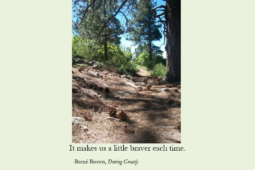
Thanksgiving and Christmas without our loved ones can be difficult. I’ve gathered grief resources for the holidays. In this post I highlight 3 strategies to deal with grief. I also look at why it’s important to grieve and how we can meet people in their space of mourning.
3 Strategies to Deal with Grief
I chose these 3 strategies because they emphasize the importance of being where you are, remembering your loved ones, and reaching out to others. They are also a few of the ways that I have seen my friends handle grief.
These strategies are from an article by Amy Morin, a psychotherapist turned author. She lists nine strategies and of those nine, I want to highlight three.
3 Strategies to Deal with Grief:
1. Allow Yourself to Feel a Range of Emotions
The range of emotions that Amy mentions are joy, guilt, and sadness. Amy encourages feeling whatever emotion you are experiencing without telling yourself you should be feeling differently. This might mean letting yourself enjoy something that makes you happy without feeling like you should be feeling sad instead. However, it can go the other way as well. If you aren’t up for the cheery event, it’s okay to feel sad. It is important to be gentle with yourself.
2. Find a Way to Honor Your Memories
Amy lists commemoration as a strategy because it reminds us that our loved ones are still with us. We might write a short remembrance of them or light a candle. Or maybe there is an object that they made or that was passed onto you that you can set close to you. However we honor their memories, we do it so that it can bring us comfort amidst the grief. When we honor the memory of our loved ones we are remembering how things were in the past, but also bringing the memory into our present.
3. Do Something Kind for Others
According to Amy Morin, doing something kind for others might remind you that despite your grief you still have things to give. If you journal, these might be things that you can write about later. Losing someone might make it difficult for you to embrace the love, joy, and peace of Christmas that I suggest as a journal prompt. However, if you seek out ways to be kind to others, you might add things into your day that help you embrace that love, joy, and peace of Christmas. It could also be that the love, joy, and peace that you write about are focused on memories of you and your loved one during the holidays. It might even be about how in your day you were able to embrace all the emotions that you had-the happy ones and the sad ones.
There are other ways to deal with grief, but the above three ways seem especially important to remember. They don’t ignore the emotions that you are feeling and they don’t rush you to move on. If you want more strategies for handling grief during the holidays, read Amy Morin’s full article here.
More grief resources for the holidays, and in general, include understanding why we need to grieve and knowing what we might be able to say to someone that is grieving.
Why it’s Important to Grieve
Amy Morin’s article begins by stating that the process of healing is to experience the pain of grief. It’s not in avoiding our feelings that we move on. We move on through healing and we heal by experiencing the pain.
I turned to my faith for more words of wisdom on the importance of grieving.
Here’s what Abbot Tryphon says about grief and losing a loved one:
“We need to mourn…We need to embrace the grief, and honor the bereavement process. Grief is confirmation that our loved one was a person of value, a beloved son or daughter, a cherished brother or sister, a treasured friend. Grief is how we honor a well-lived life, for the death is grief-worthy. In grieving, we do their memory justice, and follow in the example of Jesus, who wept at the grave of his friend Lazarus.”-Abbot Tryphon
This is strategy 1 and 2 that I mentioned above. Letting yourself grieve and feel both the sadness and happiness (or whatever emotions you feel) is the beginning of the healing process. It’s in the midst of that, and even through that, that we honor our loved ones.
I encourage you to read the rest of Abott Tryohon’s article on mourning our loved ones and embracing grief. He writes about how death doesn’t separate us from our loved ones.
Meeting People in Their Grief
People have a variety of ways to deal with grief. For someone that is observing, it might be difficult to know what to say. We might be a little fearful or uncertain of what to do if we are witnessing a way that someone expresses grief that we are not familiar with.
In my own journey, I’ve realized that it’s not the words that matter. Show up. Offer hugs. Do something to lighten the load of everything else that needs to get done.
If you want a best and worst list, I’ve got one of those for you too.
If someone you know is grieving here is a helpful article on the best and worst things to say to someone in grief:
10 Best and Worst Things To Say to Someone in Grief:
Grief Resources for the Holidays
I hope this article was helpful in offering ways to deal with grief. I also hope it helped show how important the grief process is and how we can be there for people that are grieving.
For more tips on dealing with grief during the holidays read grief.com’s article Grief and the Holidays. There are tips for other holidays besides Thanksgiving and Christmas.
Remember Your Loved Ones
I encourage you, if you are missing someone you love, to remember them with gratitude.
Think of the loved one(s) that you no longer with you this holiday season. List 3 things that you would want to tell them that you think they would be proud of about you. Or, list 3 things that you remember about them, that even though they are gone it brings you joy to remember.
I find that writing things down is especially helpful when I want to process or remember something. If you are open to journaling about it, write it down.
Behavior Challenge: Be kind to others. This gives us something to reflect about at the end of the day, or helps us engage with the world around us even while we are grieving. It does more than that though. It also helps us become better people.




 One behavior change at a time.
One behavior change at a time.






